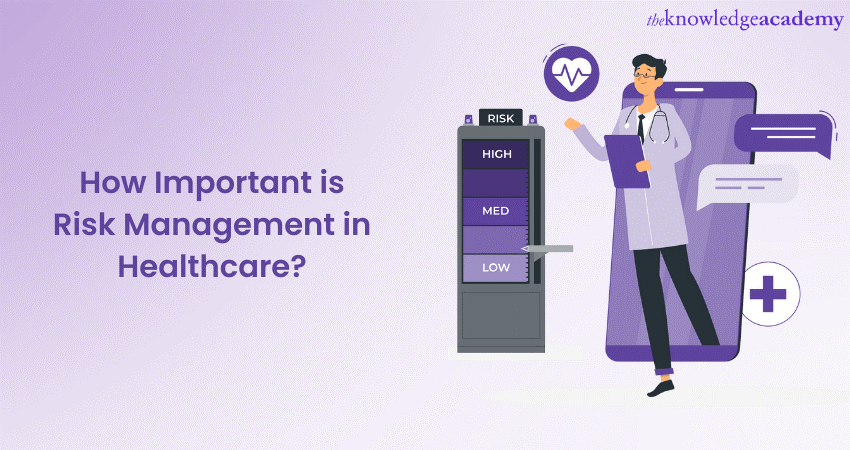A Thorough Guide to Understanding the Importance of Risk Management
A Thorough Guide to Understanding the Importance of Risk Management
Blog Article
Exploring the Relevance of Risk Management for Effective Decision-Making Strategies
In the complex world of organization, Risk Management arises as a critical element in the decision-making procedure. The capability to identify prospective hazards and possibilities, and strategize accordingly, can lead to the distinction in between success and failing.
Recognizing the Principle of Risk Management
Risk Management, a vital part in decision-making, is frequently misunderstood or oversimplified. Risk Management entails structured and disciplined approaches, making use of information and insightful assessments. From financial uncertainties, lawful responsibilities, strategic Management errors, to mishaps and all-natural catastrophes, it deals with numerous dangers - importance of risk management.
The Function of Risk Management in Decision-Making Processes
In the world of calculated preparation and company operations, Risk Management plays an important duty in decision-making procedures. Risk Management hence ends up being a vital device in decision-making, assisting leaders to make enlightened options based on an extensive understanding of the risks entailed. Risk Management serves as an important part in the decision-making processes of any kind of organization.

Just How Risk Management Boosts Strategic Planning
In the context of calculated preparation, Risk Management plays a pivotal role. Starting with the recognition of prospective dangers, it even more encompasses the application of Risk reduction actions. The role of Risk Management is dynamic but not fixed, as it requires consistent monitoring and adjusting of approaches.
Recognizing Possible Dangers

Executing Risk Mitigation
Having developed the relevance of identifying prospective dangers, the following action is to explore Risk mitigation. This process entails developing and carrying out strategies to take care of identified risks efficiently. It is an important facet of tactical preparation as it boosts decision-making by decreasing potential negative results. Risk reduction strategies can vary from Risk avoidance, Risk transfer, to risk decrease. Each method should be tailored to the certain Risk, considering its prospective link influence and the company's Risk tolerance. In addition, effective Risk mitigation calls for a deep understanding of the Risk landscape and the potential influence of each Risk. This understanding enables companies to prioritize risks and assign sources effectively, ensuring that the most considerable dangers are dealt with first.
Monitoring and Adjusting Strategies
Though Risk reduction is a crucial action in strategic preparation, constant monitoring and change of these strategies is just as crucial. It likewise offers a possibility to examine the success of the Risk Management procedures, permitting adjustments to be made where necessary, more improving calculated preparation. Tracking and readjusting Risk Management methods is an important part for improving a company's durability and critical planning.
Situation Studies: Effective Risk Management and Decision-Making
In the world of service and money, effective Risk Management and decision-making usually serve as the columns of prosperous ventures. These situations highlight the value of sharp Risk Management in decision-making processes. These cases underscore the vital role of Risk Management in critical decision-making.
Devices and Methods for Efficient Risk Management
These devices, such as Risk registers and warm maps, aid in identifying and assessing prospective risks. Risk response techniques, a key part of Risk Management, include approving, staying clear of, moving, or mitigating dangers. With these devices and strategies, decision-makers can navigate the complex landscape of Risk Management, therefore assisting in informed and effective decision-making.
Future Fads in Risk Management and Decision-Making Techniques
As we check out the substantial landscape of Risk Management, it comes to be obvious that the strategies and tools used today will proceed to evolve. The principle of Risk culture, where every member of a company is mindful and involved in Risk Management, will certainly get a lot more prestige. These fads declare a more aggressive and inclusive approach in the direction go now of Risk Management and decision-making.
Final thought

Risk Management thus becomes a vital device in decision-making, aiding leaders to make enlightened selections based on an extensive understanding of the dangers involved. Risk reduction strategies can range from Risk evasion, Risk transfer, to risk decrease (importance of risk management). Efficient Risk mitigation requires a deep understanding of the Risk landscape and the about his prospective effect of each Risk. Risk reaction techniques, a crucial component of Risk Management, entail accepting, preventing, moving, or mitigating threats. The concept of Risk society, where every participant of a company is aware and involved in Risk Management, will certainly acquire a lot more prominence
Report this page